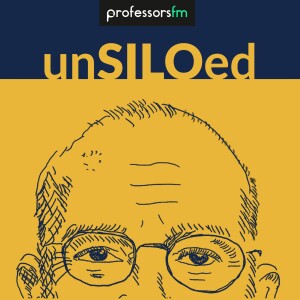
Major layoffs, fake news and misinformation, as well as social media wars against the media & journalists have been hot topics in the last few years when it comes to what we consider “news,” especially in the United States.
Will Slauter consider the problems of our modern day news production, by taking a look at the past, and the history of news media that brought us to this place.
Will is a professor of history and American studies at Sorbonne Université in Paris. His research interests include the history of publishing, the history of news and journalism, and the history of copyright law in the United States and the United Kingdom. He also wrote the book “Who Owns the News?: A History of Copyright.”
This episode covers a wide range of issues from the history of news including: The origins of content curation, The AP vs. INS - a critical legal case on intellectual property, and the role of the post office in disseminating information.
Episode Quotes:AP vs. INS legal case:
The legal principle that we're talking about is this idea of a quasi property. The court said well, any newspaper reader or anybody out there, as soon as they learn the news would be free to repeat it, would be free to discuss it and so on. But it's not right for direct competitors, another press agency, and newspapers that own presses to free ride on the labor of the Associated Press. And so what they got was this misappropriation that basically says for as long as the news has commercial value no direct competitors may republish it.
Facebook algorithms and news curation:
When it's done by an algorithm, it raises all sorts of other questions. And there's the algorithm - we know it is very personalized and is trying to elicit certain kinds of responses from us and to target advertising that will go along with it and so on. And so I think actually that makes it all the more valuable to look at the history of compilation, look at the history of news aggregation as something that goes back. And think about what is lost when you lose that human element.
Thoughts on when the postal services subsidized newspapers:
You can see that this is an early republic. They're all very aware of the fact that this [the United States] is a vast territory, that there are going to be regional differences. There already are with questions like slavery. And that in order for democracy to function on such a wide geographic scale, the post office is going to be crucial and it's by ascending newspapers through the mail that we could have the possibility of facilitating the circulation of information.
Looking back at the Fairness Doctrine:
And people in recent years have often looked back with perhaps a bit too much nostalgia at the Fairness Doctrine. At least in principle it seems like something that we could use now. Some people have said, well it didn't actually always work out that well, it didn't always really lead to both sides given equal treatment.
But on the other hand, it was a principle and it was something that was there and it was attached to the license. It was something that was potentially where the state could intervene.
Guest Profile:
- Faculty Profile at Sorbonne Université
- Will Slauter on Twitter
- Will Slauter on Books and Ideas
His work:
- Will Slauter’s Published Articles
- Who Owns the News?: A History of Copyright
More Episodes
 2022-05-25
2022-05-25
 2022-05-16
2022-05-16
 2022-05-13
2022-05-13
 2022-05-09
2022-05-09
 2022-05-02
2022-05-02
 2022-04-27
2022-04-27
 2022-04-25
2022-04-25
 2022-04-11
2022-04-11
Create your
podcast in
minutes
- Full-featured podcast site
- Unlimited storage and bandwidth
- Comprehensive podcast stats
- Distribute to Apple Podcasts, Spotify, and more
- Make money with your podcast
It is Free
- Privacy Policy
- Cookie Policy
- Terms of Use
- Consent Preferences
- Copyright © 2015-2024 Podbean.com






